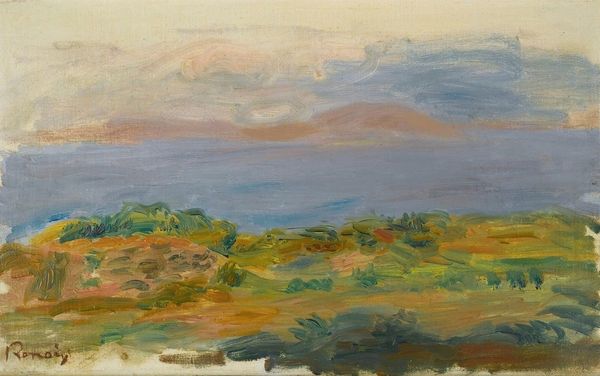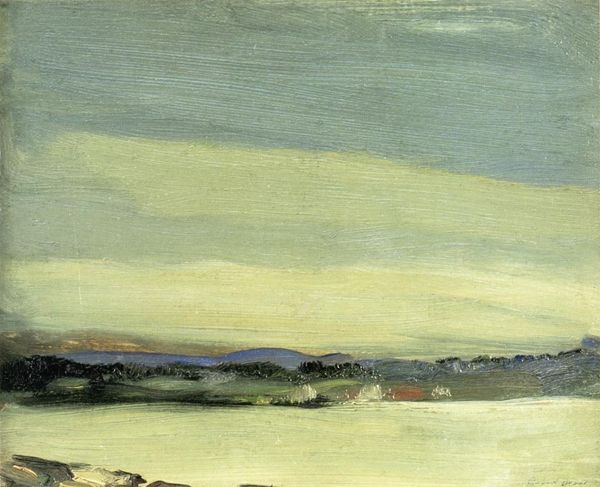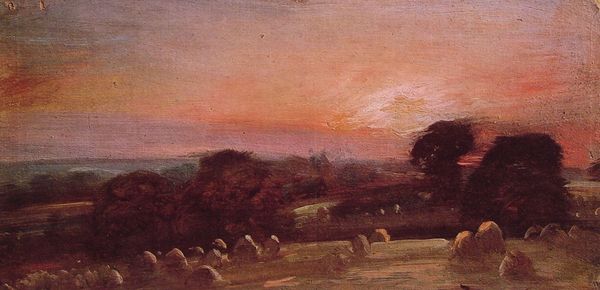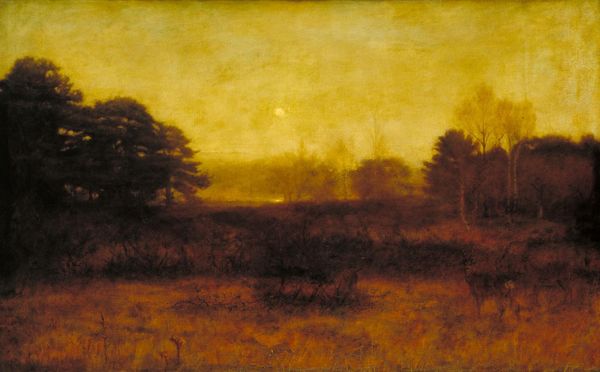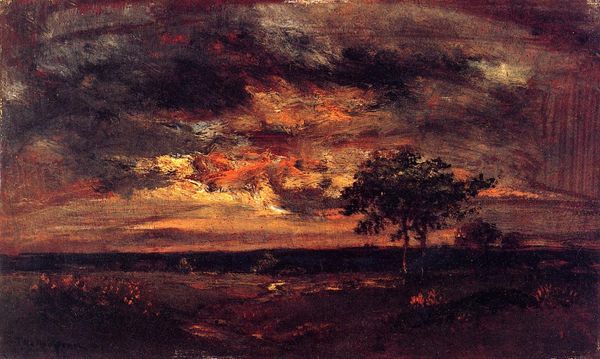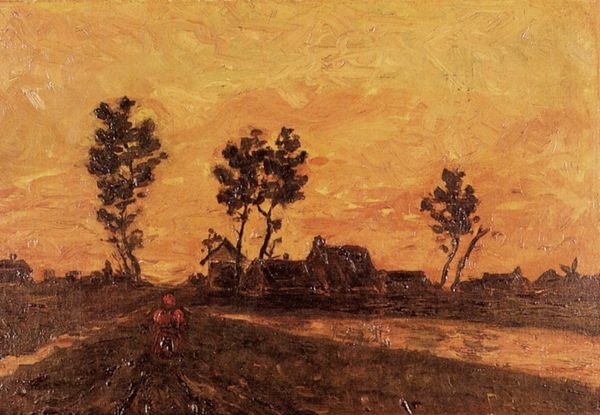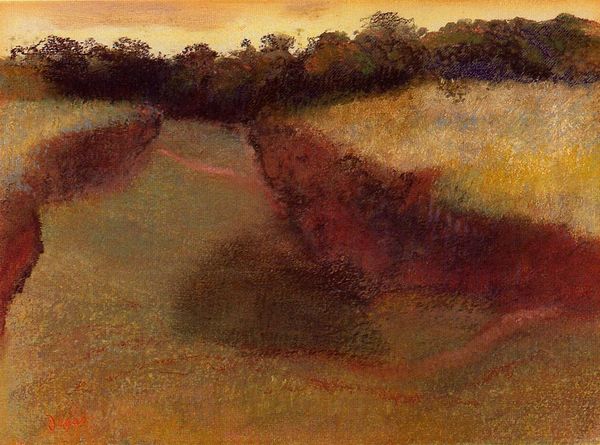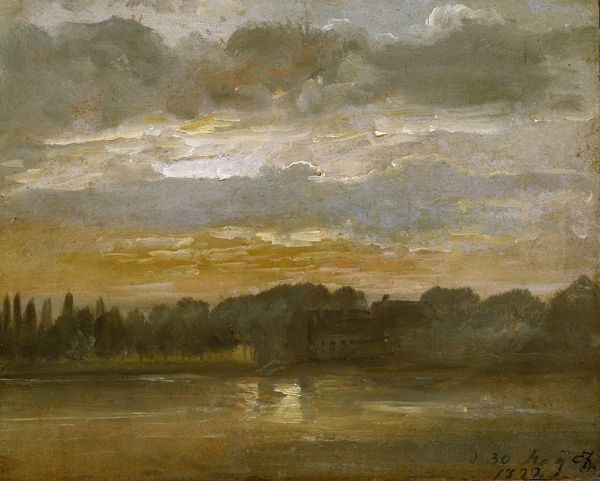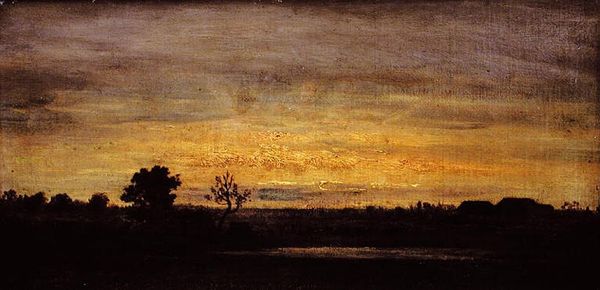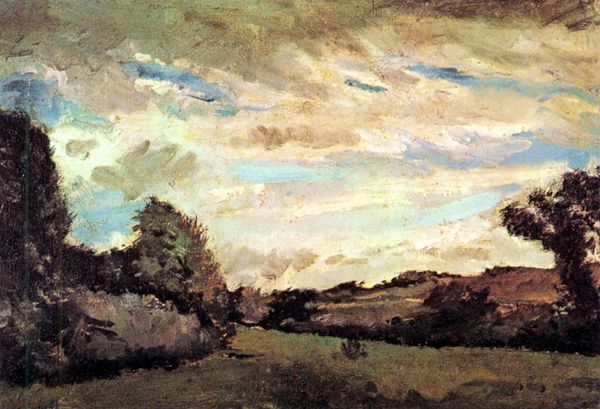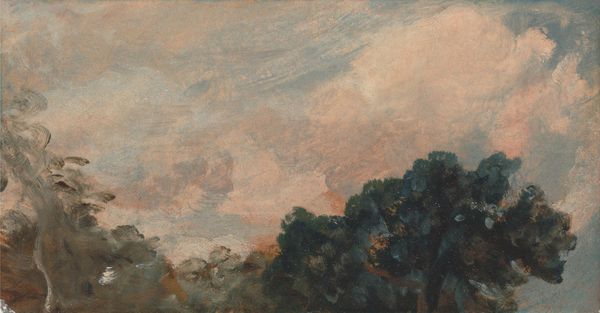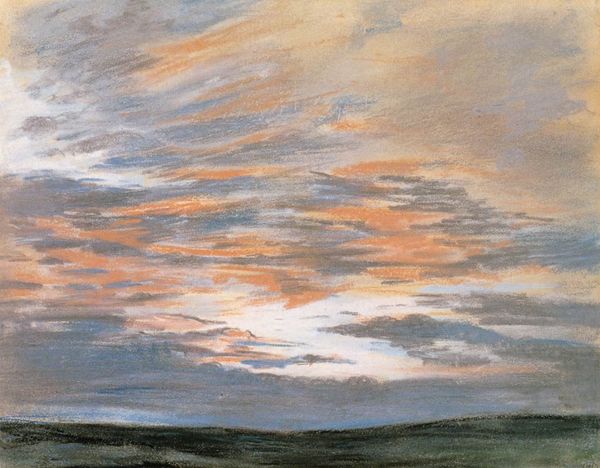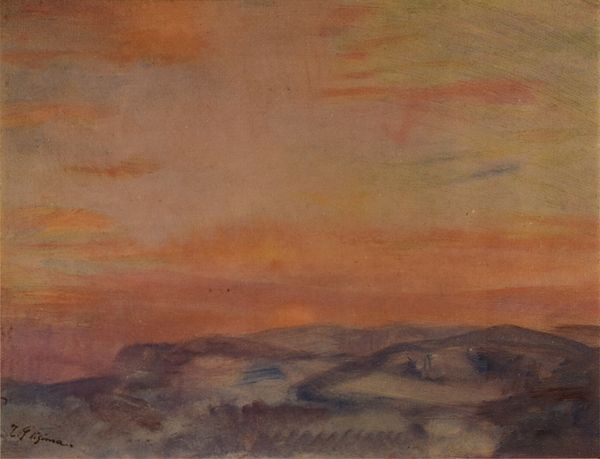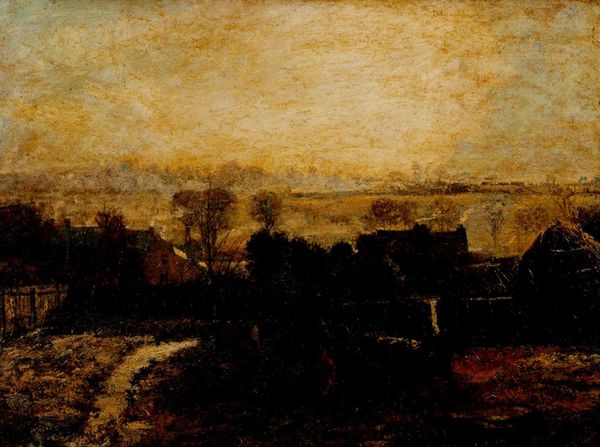
Dimensions: 15.3 x 24.5 cm
Copyright: Public domain
Curator: This is John Constable’s "East Bergholt Rectory," an oil-on-canvas sketch completed around 1810. It's part of his series of landscape studies done en plein air. What do you make of it initially? Editor: It strikes me as a melancholic scene, shrouded in that fiery sunset, or perhaps sunrise. The loose brushstrokes almost feel turbulent, despite the stillness of the land. Curator: Indeed. Constable was fascinated by the rural working class and his paintings became acts of rural preservation by portraying them in these artworks. We should keep in mind the context: England was rapidly industrializing. What was the material impact? How was art changing? Oil paint provided a new medium for capturing fleeting atmospheric conditions—the skies, the textures of nature became really palpable. Editor: Absolutely, and let's not forget the broader societal currents. Romanticism emphasized feeling over reason, nature as sublime...How did those industrial changes impact community? Who had access to this "nature"? These scenes weren't just pretty pictures; they were charged with class tensions. Curator: Precisely! The rise of factories reshaped labor. Paint tubes themselves became mass-produced! Artists like Constable explored personal visions tied to his upbringing with newly available material and manufacturing. Look at his gestural, less precise application of the oil-based paint. That’s what distinguished his production from the older academic styles, becoming impressionist as some scholars assert. Editor: Those are powerful shifts to highlight! We can view it through a Marxist lens. Art shifted from patronage to the open market and how did that change artistic intent? How do idyllic rural scenes obscure realities for many people who lived in the industrial era? The painting prompts that debate of nostalgia versus historical record. Curator: Fascinating food for thought. I appreciate how his deep engagement with his subject informed the innovative use of the very matter of oil paint itself. He understood the properties and limitations better than many of his peers. Editor: Right. That kind of analysis helps unearth what’s absent, enabling further reflection upon representation, historical circumstances, class, identity, and the work's political life! Curator: That brings the history to our present moment with crucial perspectives! Thank you. Editor: Likewise. This was quite revealing!
Comments
No comments
Be the first to comment and join the conversation on the ultimate creative platform.
